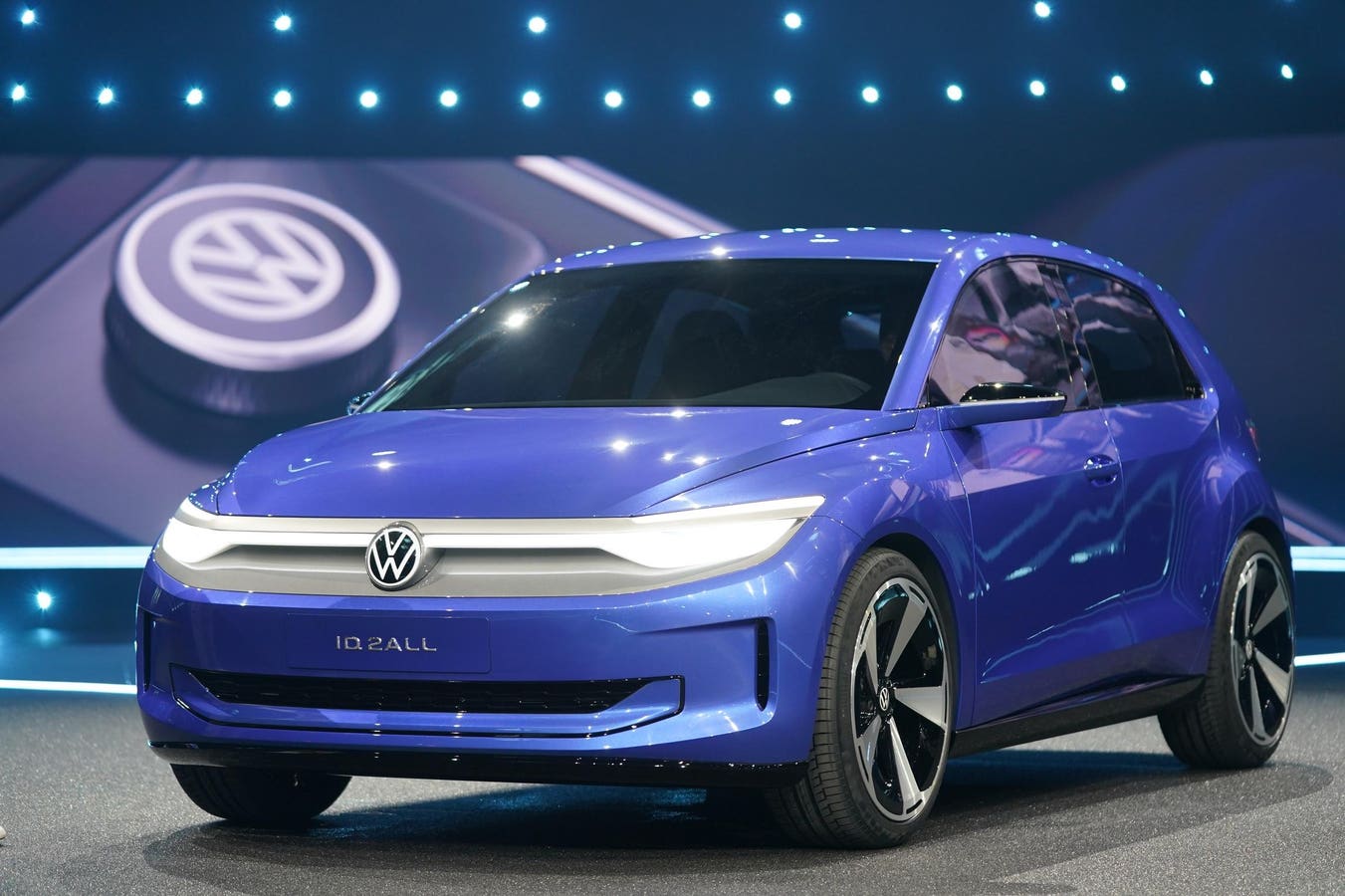Volkswagen’s plan to rejuvenate the sagging profitability of its mass-market brands was led by a call for “value over volume” and wants managers freed from bureaucracy.
On balance, investors liked what they heard at the investors’ day Wednesday but the stock price sagged a little, probably because many had heard these hopes before as the company relentlessly improved sales over the years while profitability lagged.
The implied need to reduce headcount to increase efficiency to VW’s competitors’ levels in the past would rarely get past the traditional union veto but now there is an easier path as the ageing workforce will be taking retirement in increasing numbers.
Volkswagen’s previously announced plan was to cut €10 billion ($10.9 billion) out of its costs and raise overall returns on sales to 6.5% at its core VW brand. The mass market brands of the namesake VW, and Skoda and SEAT brands have been ordered to streamline their product ranges.
The meeting was told that each brand, upmarket as well as workaday, had been set performance programs. The overall VW group is targeting operating profits of 9 to 11% by 2030, up from 8.1% last year, with the watchwords being “value over volume”. Annual sales growth is projected to be between 5 and 7% on average until 2027.
“If you look at how Volkswagen operated in the past, often we had a fixed cost growth and we wanted to outgrow that fixed cost,” chief financial officer Arno Antlitz told the meeting, held at Germany’s Hockenheimring racing circuit.
“The group needs to change that strategy to our value over volume approach, be very disciplined on fixed cost, be very disciplined on investment and rather focus on value,” he said.
Investment researcher Jefferies wasn’t convinced, wondering if VW could eschew dependence on sales volume rather than the bottom line.
“With some sense of déjà vu, we are left to focus on execution while still wondering if VW Group is not just too big and complex to succeed,” Jefferies said in a report.
“CEO (Oliver) Blume insisted on a more entrepreneurial mindset across the group, giving brands more leeway to define product values while making them accountable on profit and cash conversion,” the report said.
“But will likely keep alive the traditional conflict between brand freedom and efforts to leverage group technology and platforms. Reducing complexity seems the key driver for legacy businesses, but 80 new models to be launched by 2030 suggests a continuation of model proliferation in an EV (electric vehicle) world and the ensuing complexity,” according to the report.
Reuters’ Breaking Views column said VW pledged bold new margin targets and more efficient investment plans.
“Both are welcome but may not be enough to boost the €73 billion ($82 billion) group’s lowly (stock market) valuation,” Breaking Views columnist Neil Unmack said.
The targets for the mass market brands look bold.
“Take the volume brands unit, which includes the Volkswagen and Skoda marques. It’s now expected to generate an 8% operating margin by 2027. That’s less than the 10% boasted by Stellantis’s European business, but still roughly double last year’s 4%,” Unmack said.
Bernstein Research had seen it all before but liked the detailed structure.
“The strategic plan has not fundamentally changed. Volkswagen is still trying to do everything, everywhere, all at once. But the plan now has a structure that investors can track and an updated internal governance can help accelerate execution,” Bernstein Research said.
“Volkswagen is facing urgent product competitiveness issues, but during the (meeting), there was not enough evidence presented to alleviate concerns in the short-term. The event primarily focused on providing guidance for the medium- to long-term, and there were few details given to help investors share management’s confidence that the group’s competitiveness, particularly in the area of BEVs (Battery Electric Vehicles) in China, would improve in the near future,” according to Bernstein.
VW, and all European auto manufacturers, face an existential threat from China’s BEV makers. This is aimed not only at the lower end of the market, always vulnerable to cheap and cheerful foreign onslaughts, but at the top end too.
One analyst who asked not to be named, said in the past, the European market was attacked by first the Japanese, then the Koreans, in a slow but sure, value-driven manner. The China threat is much more dangerous with about 20 to 30 brands massing to attack, not only the value end, but also the premium citadels of Mercedes, BMW, Audi and Porsche. CEO Blume’s pledge to introduce a “cheap” BEV, the ID.2 in 2025 at €25,000 ($27,400), was “laughable”, this analyst said. It would be left in the dust by Chinese vehicles because it was too expensive and too late.
Investors worry about Volkswagen’s governance, which has historically focussed more on keeping employees happy than investors. VW is controlled by a 20-seat supervisory board where unions control half the votes and two politicians from the state of Lower Saxony often vote with Labor. For decades, investors have backed off from VW shares because the clunky management structure has blocked attempts to turn the company into a normal corporation where profit-conscious shareholders call the shots.
In the past, talk of workforce reduction would crash and burn in the face of the union majority on the supervisory board. But this analyst thinks the current overmanning will probably whither voluntarily as the ageing workforce retires naturally.
Investors were feeling positive about the possibilities of improving VW’s troubled outlook prior to the meeting, as the share price rallied to just over €160. Last-minute worries set in Monday as the price slid back to under €160, while it closed Thursday down at €151.65.
Read the full article here













